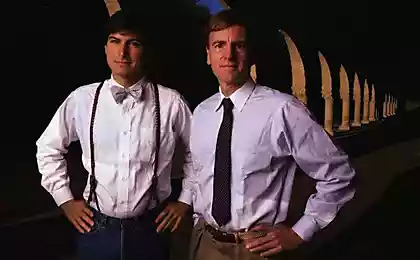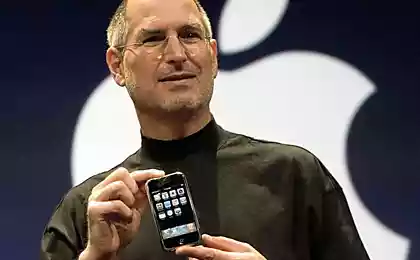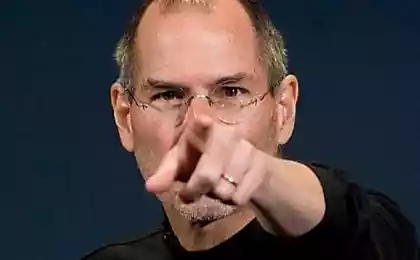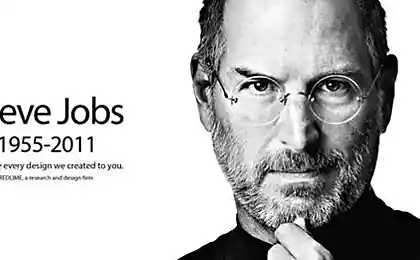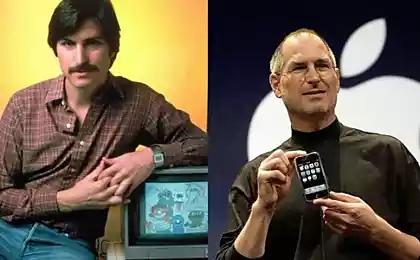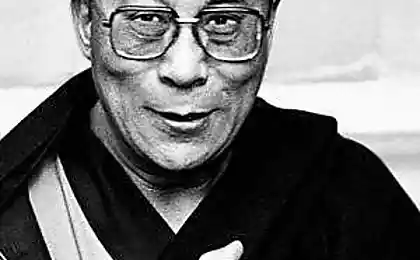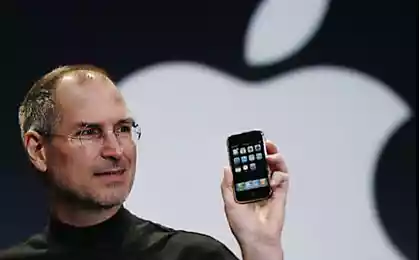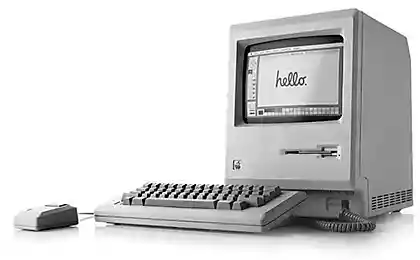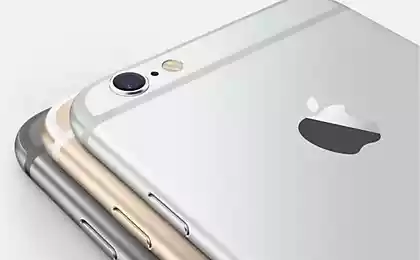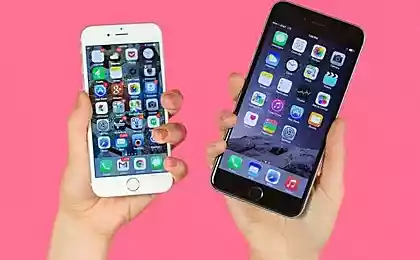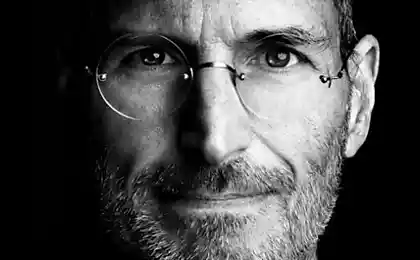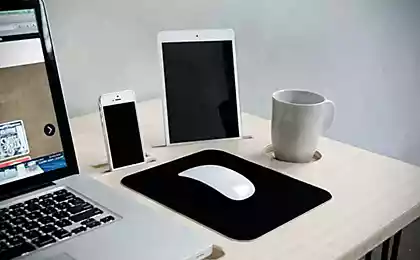822
Ten years of iPhone: how Steve jobs changed the world
"Why phone?" I asked Steve jobs a decade ago. On the stage of the Moscone West Hall in San Francisco, Apple CEO has just presented what will be the most revolutionary product since PC. Jobs understood this well. But the iPhone was so strikingly different from everything else that there was no guarantee that he will be a success. Then nothing was said about that in these days leaving the house without a smartphone is akin to walking naked.
Jobs looked at me calmly. "We looked at the market, analyzed it, studied consumer demand and came to the conclusion that we can earn a lot of money," he said.
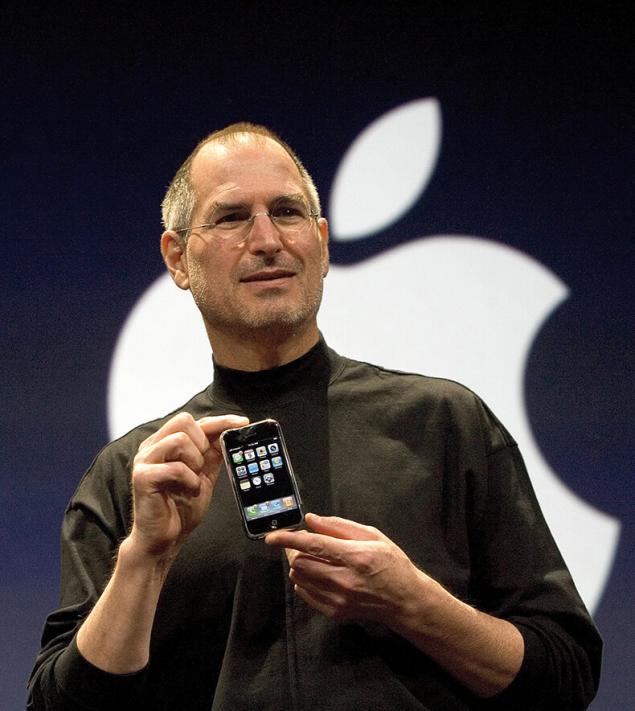
It was a joke! "It's not about us," he explained quickly. Apple has long wanted to release the phone. The company had a lot of ideas, especially in terms of creating a touchscreen interface. But we had to wait for the right moment, when the operators are ready to give Apple the control, allowing the company to design the package of hardware and software.
One thing struck me during the speech of Steve jobs: Apple has created a small set of native applications and it seems the device was not open to third party developers. It is not evident from his report, but he confirmed my hunch. He explained that this is a safety issue. "You do not want your phone were an open platform, he said. — You don't want to stop work because of three apps that you have downloaded in the morning. Cingular doesn't want to see their mobile network will collapse for some applications. In this sense, this thing is more like the iPod than on the computer."
Now of course we know that Apple changed course. Since then, iPhone users have downloaded over 40 billion apps. And it was a revolution, thanks to which the iPhone (and now his rivals) allows us to perform a dizzying range of activities.
In January 2007, the expectations of jobs was high. But they are not even close to reflect the impact iPhone will have on the world and the Apple. In the last quarter Apple sold roughly 75 million iPhones for $51 billion. During these three months the iPhone has brought approximately two thirds of the income of the company. Only Apple has sold more than a billion phones.
Apple is known not to look back. When approaching the anniversary of a product, the company typically denies the request to recall and to talk about it. ("I don't think about it," said me Steve jobs on the eve of the 25th anniversary of the Macintosh in 2008.) At this time, the company made an exception last week, I met with Vice President Phil Schiller, who came to Apple in April 1997, simultaneously with the return of Steve jobs. Schiller was deeply involved in the development and launch of the iPhone.
I asked him whether Apple feeling how enormous project would be the iPhone.
"Yes, but not on this scale, he said. We knew that working on something important, great for Apple and that this thing will change the world in the future. But we didn't know how serious it is, how much happens because of him."
Schiller has also shed light on why the iPhone was created as a closed system. Then Apple was a hot internal debate. Some wanted the device was an open system like the Macintosh, the other inclined to a closed system like an iPod. The dispute was over, when engineers realized that even if the supporters of an open system won, it would be impossible to carry it to the launch date. Steve jobs personally closed the discussion.
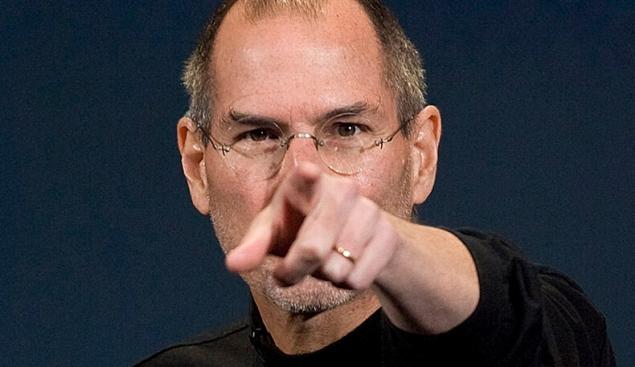
Schiller rejected my suggestion that the hour iPhone came when Apple opened the doors for developers, and we learned that for every conceivable action, there are app.
"People underestimate how revolutionary was the iPhone when it first came on the market, and we all first got it and fell in love with him, says Schiller. — the iPhone made the idea of a real smartphone. It was a real computer in your pocket. The idea of this online, real web browser, multitouch. It was so many things that are the essence of today's smartphone. They formed a product that customers love, and then it took them more than any stuff in it, more applications."
I asked how the success of the iPhone changed Apple itself. Schiller prefers to consider the iPhone as part of an ongoing process of change that began with the return of Steve jobs and the creation of the iPod.
"If not iPod, I don't know, would all iPhone, says Shiller. He introduced the Apple audience that did not belong to the typical customers of the company. iPod went from accessory to the Mac before turning into an independent cultural trend. During this time Apple itself has changed. Our marketing has changed. We had ads with dancing silhouettes and iconic product with white headphones. We said, "Well, if Apple was able to create this thing that's different from all the previous products, what else can Apple do?"
Recently, however, Apple is concerned how the current model of the iPhone to further enhance its role. More often heard complaints that Apple plays it safe: in the new phones, there are no innovative updates, as in the early years of the iPhone when Steve jobs was still alive.
"I think that changes as significant as before, and sometimes more radical, denies the accusations Schiller. Just changed our expectations. If you consider each version — with the original iPhone to the iPhone 3G 4 and 4S, you will see big changes everywhere. The screen size was changed from 3.5 inches to 4, then to 4.7 and finally 5 inches. Incredible changes have occurred with the camera: from the first, which couldn't make a video, up to two cameras on the front and back panels, and to present three cameras with live photos and 4K video."
Perhaps some of these changes occurred in response to actions of competitors, such as large screens, which first appeared in Samsung and other smartphones. When Apple realized that the iPhone needs some competition.
"When we released the iPhone, Steve jobs said that for five years, we will not be equal, — said Schiller. — It was very accurate. Market size of cell phones and the important role of smartphones contributed to the fact that many tried to enter this business. Some succeeded, some failed. The competition is huge. It urges on us."
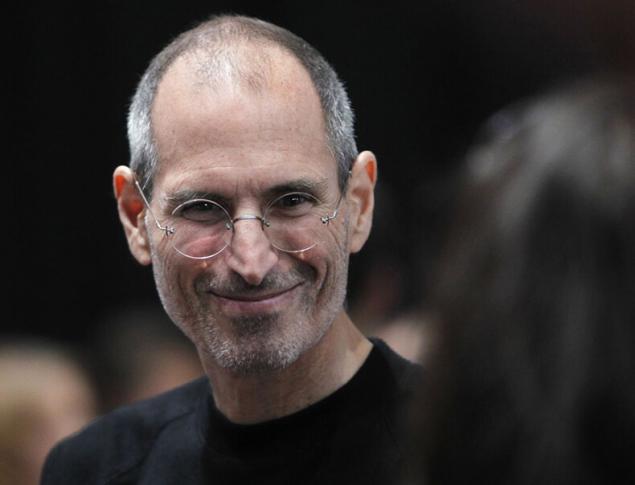
Schiller stresses that the Apple stores will continue to maintain leadership, despite the fact that Android surpasses iPhone in number of phones sold (but not profit), and sales of the iPhone seem to slow down.
"The quality is not surpassed. Ease of use is still not surpassed. No one has surpassed us in the degree of integration of software and hardware. Apple is not the cheapest, not the mass; the Apple is the best".
Schiller is confident that in the next 50 years the iPhone will continue to evolve. "This product is so great that he had many more years of innovation," he says.
In recent years, many say we are in the beginning of the era of the dialog interface. And Apple, of course, in the center of events with Siri voice assistant built into every iPhone. "It's really important, says Schiller, and I am very happy that team a few years ago decided to create Siri. I think in the field dialog interface we did more than anyone else. Personally, I think that the best intelligent assistant — the one that is with you all the time. iPhone as well the only thing I say is better than something stuffed in my kitchen or hanging somewhere on the wall."
However, it seems that the voice interface is Alexa, developed by Amazon, it looks better as it is not tied to a specific device and can work anywhere.
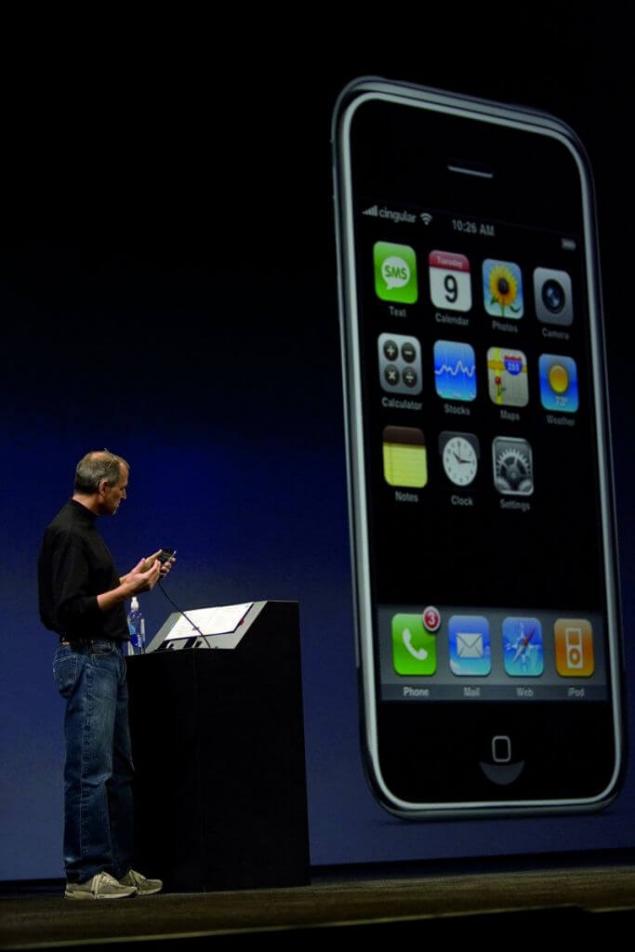
"People forget about the importance of the display object to Schiller. The most important innovation of the iPhone is the display. Displays — this is not something that will disappear with time. We also love to be photographed, and we need to look at pictures, and a disembodied voice can't show me no picture".
In any case, the first decade of the iPhone has left a staggering legacy. This is our digital prostheses. We are cyborgs, connected to smartphones, which either give us power or make us weaker, when for some reason we don't. No one knew that would happen, including Apple.
Arnold Smeyanovich: Atherosclerosis, osteochondrosis, glaucoma is the payback for long life
Natalya spondylitis: Clinical death is not a black hole
"When we launched the iPhone, we could assume that the phones will change forever, will be better, says Schiller. We could assume that we will be able to go with them to the Internet. We could assume that we will be able to use e-mail. We could imagine that one day the iPhone will replace the iPod. All that we knew. But the magical thing that happened during the existence of the iPhone, is that it has become the most important device in our life. I don't think someone would be able to realize this change in our interaction with the world, until we started to live with iPhones and use them".published
Source: ideanomics.ru/articles/8260
Jobs looked at me calmly. "We looked at the market, analyzed it, studied consumer demand and came to the conclusion that we can earn a lot of money," he said.

It was a joke! "It's not about us," he explained quickly. Apple has long wanted to release the phone. The company had a lot of ideas, especially in terms of creating a touchscreen interface. But we had to wait for the right moment, when the operators are ready to give Apple the control, allowing the company to design the package of hardware and software.
One thing struck me during the speech of Steve jobs: Apple has created a small set of native applications and it seems the device was not open to third party developers. It is not evident from his report, but he confirmed my hunch. He explained that this is a safety issue. "You do not want your phone were an open platform, he said. — You don't want to stop work because of three apps that you have downloaded in the morning. Cingular doesn't want to see their mobile network will collapse for some applications. In this sense, this thing is more like the iPod than on the computer."
Now of course we know that Apple changed course. Since then, iPhone users have downloaded over 40 billion apps. And it was a revolution, thanks to which the iPhone (and now his rivals) allows us to perform a dizzying range of activities.
In January 2007, the expectations of jobs was high. But they are not even close to reflect the impact iPhone will have on the world and the Apple. In the last quarter Apple sold roughly 75 million iPhones for $51 billion. During these three months the iPhone has brought approximately two thirds of the income of the company. Only Apple has sold more than a billion phones.
Apple is known not to look back. When approaching the anniversary of a product, the company typically denies the request to recall and to talk about it. ("I don't think about it," said me Steve jobs on the eve of the 25th anniversary of the Macintosh in 2008.) At this time, the company made an exception last week, I met with Vice President Phil Schiller, who came to Apple in April 1997, simultaneously with the return of Steve jobs. Schiller was deeply involved in the development and launch of the iPhone.
I asked him whether Apple feeling how enormous project would be the iPhone.
"Yes, but not on this scale, he said. We knew that working on something important, great for Apple and that this thing will change the world in the future. But we didn't know how serious it is, how much happens because of him."
Schiller has also shed light on why the iPhone was created as a closed system. Then Apple was a hot internal debate. Some wanted the device was an open system like the Macintosh, the other inclined to a closed system like an iPod. The dispute was over, when engineers realized that even if the supporters of an open system won, it would be impossible to carry it to the launch date. Steve jobs personally closed the discussion.

Schiller rejected my suggestion that the hour iPhone came when Apple opened the doors for developers, and we learned that for every conceivable action, there are app.
"People underestimate how revolutionary was the iPhone when it first came on the market, and we all first got it and fell in love with him, says Schiller. — the iPhone made the idea of a real smartphone. It was a real computer in your pocket. The idea of this online, real web browser, multitouch. It was so many things that are the essence of today's smartphone. They formed a product that customers love, and then it took them more than any stuff in it, more applications."
I asked how the success of the iPhone changed Apple itself. Schiller prefers to consider the iPhone as part of an ongoing process of change that began with the return of Steve jobs and the creation of the iPod.
"If not iPod, I don't know, would all iPhone, says Shiller. He introduced the Apple audience that did not belong to the typical customers of the company. iPod went from accessory to the Mac before turning into an independent cultural trend. During this time Apple itself has changed. Our marketing has changed. We had ads with dancing silhouettes and iconic product with white headphones. We said, "Well, if Apple was able to create this thing that's different from all the previous products, what else can Apple do?"
Recently, however, Apple is concerned how the current model of the iPhone to further enhance its role. More often heard complaints that Apple plays it safe: in the new phones, there are no innovative updates, as in the early years of the iPhone when Steve jobs was still alive.
"I think that changes as significant as before, and sometimes more radical, denies the accusations Schiller. Just changed our expectations. If you consider each version — with the original iPhone to the iPhone 3G 4 and 4S, you will see big changes everywhere. The screen size was changed from 3.5 inches to 4, then to 4.7 and finally 5 inches. Incredible changes have occurred with the camera: from the first, which couldn't make a video, up to two cameras on the front and back panels, and to present three cameras with live photos and 4K video."
Perhaps some of these changes occurred in response to actions of competitors, such as large screens, which first appeared in Samsung and other smartphones. When Apple realized that the iPhone needs some competition.
"When we released the iPhone, Steve jobs said that for five years, we will not be equal, — said Schiller. — It was very accurate. Market size of cell phones and the important role of smartphones contributed to the fact that many tried to enter this business. Some succeeded, some failed. The competition is huge. It urges on us."

Schiller stresses that the Apple stores will continue to maintain leadership, despite the fact that Android surpasses iPhone in number of phones sold (but not profit), and sales of the iPhone seem to slow down.
"The quality is not surpassed. Ease of use is still not surpassed. No one has surpassed us in the degree of integration of software and hardware. Apple is not the cheapest, not the mass; the Apple is the best".
Schiller is confident that in the next 50 years the iPhone will continue to evolve. "This product is so great that he had many more years of innovation," he says.
In recent years, many say we are in the beginning of the era of the dialog interface. And Apple, of course, in the center of events with Siri voice assistant built into every iPhone. "It's really important, says Schiller, and I am very happy that team a few years ago decided to create Siri. I think in the field dialog interface we did more than anyone else. Personally, I think that the best intelligent assistant — the one that is with you all the time. iPhone as well the only thing I say is better than something stuffed in my kitchen or hanging somewhere on the wall."
However, it seems that the voice interface is Alexa, developed by Amazon, it looks better as it is not tied to a specific device and can work anywhere.

"People forget about the importance of the display object to Schiller. The most important innovation of the iPhone is the display. Displays — this is not something that will disappear with time. We also love to be photographed, and we need to look at pictures, and a disembodied voice can't show me no picture".
In any case, the first decade of the iPhone has left a staggering legacy. This is our digital prostheses. We are cyborgs, connected to smartphones, which either give us power or make us weaker, when for some reason we don't. No one knew that would happen, including Apple.
Arnold Smeyanovich: Atherosclerosis, osteochondrosis, glaucoma is the payback for long life
Natalya spondylitis: Clinical death is not a black hole
"When we launched the iPhone, we could assume that the phones will change forever, will be better, says Schiller. We could assume that we will be able to go with them to the Internet. We could assume that we will be able to use e-mail. We could imagine that one day the iPhone will replace the iPod. All that we knew. But the magical thing that happened during the existence of the iPhone, is that it has become the most important device in our life. I don't think someone would be able to realize this change in our interaction with the world, until we started to live with iPhones and use them".published
Source: ideanomics.ru/articles/8260
Ten years of iPhone: how Steve jobs changed the world
Paisios of the Holy mountain: God hurts for the grief that people experience
